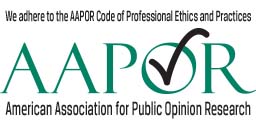Application of Knowledge Management Requirements in the Mining Industries Sector from the Employees' Point of View: A Suggested Case Study on the Jordan Phosphate Mines Company
DOI:
https://doi.org/10.25255/2306.8043.2021.9.2.31.39Keywords:
Knowledge Management, Mining Industries, Phosphate Mines, JordanAbstract
The study aims to develop a research model to identify the requirements of knowledge management in the mining sector from the perspective of employees, by examining the relationship between knowledge management requirements (organizational culture, management leadership, organizational structure and information technology) and the application of knowledge management in the mining sector, in order to determine the reality of knowledge management requirements in Jordanian phosphate in the development, management, production and manufacture of phosphates resulting in more efficient production, while the study made several recommendations, such as holding a series of workshops and conferences to introduce a knowledge management culture, designing a central database in various sectors, including the mining industry, to store and exchange knowledge, focusing on infrastructure and technology and allocating financial and intellectual resources. This is to establish effective communication networks in the mining sector.
Downloads
References
Aldmour, R., & Obeidat, B. (2017). Factors influencing the adoption and implementation of HRIS applications: are they similar. International Journal of Business Innovation and Research, 14(2), 139-167.
Al-Dmour, R., Obeidat, B., & Almajali, D. (2015). The practice of HRIS applications in business organizations in Jordan: an empirical study. European Journal of Business and Management, 7(33), 37-51.
Almajali, D., & Al-Lozi, M. (2016). Determinants of the actual use of e-learning systems: an empirical study on Zarqa university in Jordan. Journal of Social Sciences (COES&RJ-JSS), 5(2), 172-200.
Alrowwad, A., Obeidat, B., & Al-Khateeb, A. (2018). The role of work/life balance and motivational drivers of employee engagement on the relationship between talent management and organization performance: a developing country perspective. Modern Applied Science, 12(11), 35-54.
Draghicia, A., Baban , C-F., Gogan, M-L., & Ivascu, L.V. (2015). A knowledge management approach for the university-industry collaboration in open innovation. Proceedings of the 2nd Global Conference on Business, Economics, Management and Tourism, 30-31 October 2014, Prague, Czech Republic.
Jawabreh, O., Mahmoud, R., & Hamasha, S. (2020). Factors influencing the employees’ service performance in hospitality industry case study Aqaba five stars hotel. GeoJournal of Tourism and Geosites, 29(2), 649-661.
Masa'deh, R. (2012). The impact of Management Information Systems (MIS) on Quality Assurance (QA): a case study in Jordan. International Journal of Information, Business and Management, 4(2), 93-110.
Masa'deh, R. (2013). The impact of information technology infrastructure flexibility on firm performance: an empirical study of Jordanian public shareholding firms. Jordan Journal of Business Administration, 9(1), 204-224.
Masa'deh, R. (2016). The role of knowledge management infrastructure in enhancing job satisfaction at Aqaba five star hotels in Jordan. Communications and Network, 8(4), 219-240.
Masa'deh, R., & Shannak, R. (2012). Intermediary effects of knowledge management strategy and learning orientation on strategic alignment and firm performance. Research Journal of International Studies, 24, 112-128.
Masa'deh, R., Al-Badi, A., Abu-Hlalah, A., Alkyal, R., & Zytoon, S. (2017). Factors affecting user’s satisfaction of tourism board website and its impact on continuous intention to use. International Journal of Business Administration, 8(4), 1-15.
Masa'deh, R., Alrowwad, A., Alkhalafat, F., Obeidat, O., & Abualoush, S. (2018). The role of corporate social responsibility in enhancing firm performance from the perspective of IT employees in Jordanian banking sector: The mediating effect of transformational leadership. Modern Applied Science, 12(7), 1-26.
Obeidat, B., & Altheeb, S. (2018). The impact of internal corporate social responsibility on job satisfaction in Jordanian pharmaceutical companies. Modern Applied Science, 12(11), 105-120.
Obeidat, B., & Nofal, R. (2018). The effect of transformational leadership on entrepreneurial orientation: the mediating role of organizational learning capability. Modern Applied Science, 12(11), 77-104.
Obeidat, B., Al-Khateeb, A., & Abu Abdallah, A. (2019). Reviewing the mediating role of work/life balance and motivational drivers of employee engagement on the relationship between talent management and organization performance. Journal of Social Sciences (COES&RJ-JSS), 8(2), 306-326.
Shannak, R., Al-Zu’bi, Z., Obeidat, B., Alshurideh, M., & Altamony, H. (2012). A theoretical perspective on the relationship between knowledge management systems, customer knowledge management, and firm competitive advantage. European Journal of Social Sciences, 32(4), 520-532.
Shannak, R., Obeidat, B., & Almajali, D. (2010). Information technology investments: a literature review. Proceedings of the 14th IBIMA Conference on Global Business Transformation through Innovation and Knowledge Management: An Academic Perspective, Istanbul-Turkey, 23rd-24th June, pp.1356-1368.
Tarhini, A., Alalwan, A., Al-Qirim, N., & Algharabat, R. (2018). An analysis of the factors influencing the adoption of online shopping. International Journal of Technology Diffusion (IJTD), 9(3), 68-87.
Yassien, E., & Mufleh, M. (2017). The impact of ERP system's usability on enterprise resource planning project implementation success via the mediating role of user satisfaction. Journal of Management Research, 9(3), 49-71.
Zawaideh, F., Al-Zoubi, M., Abualoush, S., & Kanaan, R. (2018). The impact of knowledge documentation process as an intermediary variable among knowledge acquisition process, organizational culture and human capital. Modern Applied Science, 12(11), 151-168.








 a Creative Commons Attribution 4.0 International License.
a Creative Commons Attribution 4.0 International License.